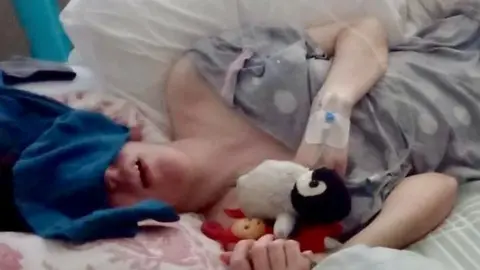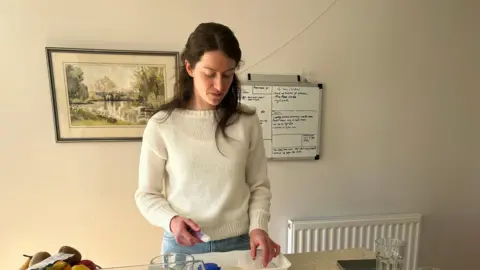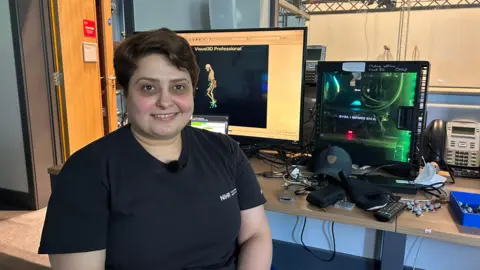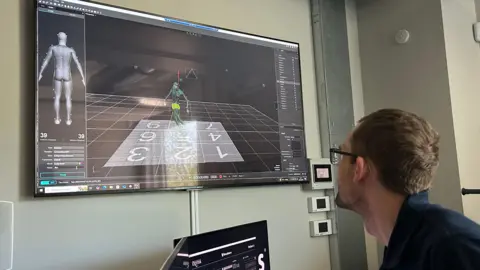Sister of bedbound ME sufferer urges more funding
 The Barrett family
The Barrett familyThe sister of a woman with severe myalgic encephalomyelitis (ME) is calling on the government to adequately fund its plan to overhaul care for patients with the debilitating disease.
Rosie Barrett, 30, of Budleigh Salterton, Devon, helps care for her sister Alice, 27, who has been bedbound for three years and is unable to eat properly.
The government said it would publish a final delivery plan to help ME sufferers by the end of June.
However, health minister Ashley Dalton told Parliament in February there were no plans for additional funding, which has left Rosie and other campaigners disappointed.
 Barrett family
Barrett familyRosie said: "How can you deliver a plan with no money assigned to it?
"I'd like the government to assign money to the plan so they can start progressing training in the NHS."
She said her sister Alice was fit and healthy until she graduated from university
She was diagnosed with ME in November 2020. The disease moderately affected her until a major deterioration at the end of April 2022, which left her bedbound.

Alice requires 24-hour care, has a catheter and is fed via a feeding tube.
She is intolerant to sound and smell, wears earplugs around the clock and must be in a darkened room.
Rosie said: "Her quality of life is really low.
"It's hard for us as a family as we feel totally useless because we can't get her better.
"There is no treatment for ME."
ME is believed to affect 1.3 million people in the UK and can be fatal, said the #ThereforMe campaign, which wants the government to spend £100m over five years to accelerate research and improve care.
Rosie is among the carers and people with ME who have shared videos online as part of the campaign.
Allow X content?
Karen Hargrave, co-founder of the campaign, said: "The delivery plan for ME is a once in a generation opportunity to transform care and research for people with ME, but it won't achieve any of its aims without the funding behind it.
"All we want is safe care and the research that's needed to help us get back to our lives again."
A report by the University of Exeter, which is based on findings from a 2023 survey conducted by the ME Association, found significant improvement in the diagnosis and care of ME and long Covid was urgently needed across the NHS and social care settings.
Completed by more than 10,000 people, respondents reported significant delays in the diagnosis of ME and long Covid, low satisfaction in specialist services and a need for better coordinated care.

Dr Mae Mansoubi, from the university, said: "Many people are suffering for a long period of time with ME before they are diagnosed.
"For about 13% of the cases, people are waiting 10 years before they are diagnosed."
Her team has created a new tool called digiTherapix which can track and record a patient's movement in real time at home.
The software can be used on any device with a camera and means healthcare professionals can remotely analyse a patient's movement and gait, their manner of walking, and make an earlier diagnosis.
Dr Mansoubi said: "People with ME are very vulnerable.
"It's very important to have a system in place to enable them to connect with a therapist in real-time from their home to seek help."

A Department of Health and Social Care said the government was committed to improving the care and support for those affected by ME and chronic fatigue syndrome.
"We will publish a final delivery plan for ME by the end of June, focusing on boosting research, improving attitudes and education, and bettering the lives of people with this debilitating disease," it said.
"The government is committed to funding high-quality research to understand the causes, consequences and treatment of ME/CFS and long Covid."
Follow BBC Devon on X, Facebook and Instagram. Send your story ideas to [email protected].
